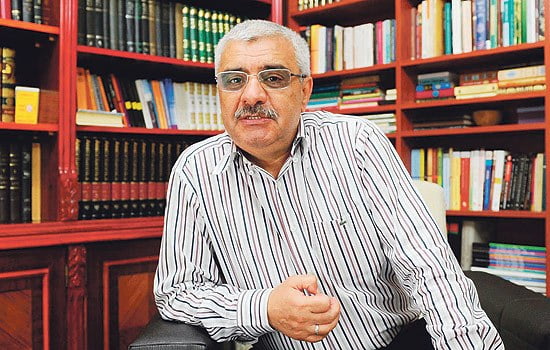Religious communities under threat in Turkey

Date posted: December 3, 2014
Ali Bulac
The ruling Justice and Development Party (AK Party) continues to see the graft and bribery investigations of Dec. 17 and 25, 2013 as a plot against its power.
These operations might have targeted the government in some respects, but so far no concrete evidence has been produced about deliberate, systematic and willful inclusion of the Hizmet movement in this plot. It is true that the Hizmet movement’s media group has been lending support to the graft and bribery investigation. In my opinion, their editorial policy might be a bit attenuated. But this editorial policy is not because the media group is a part of the efforts to overthrow the government, but because the government has made moves to shut down prep schools and there is dreadful uncertainty about where the government’s operation to destroy the Hizmet movement will stop. It may be right or wrong, but the Hizmet movement believes that the government is trying to destroy it.
Certain prominent figures lend credence to this perception. For instance, Hayati Yazıcı, who was a prominent member of the previous Cabinet, said he didn’t believe there was a “parallel structure” within the state apparatus and that evidence had to be produced to prove it. Former Interior Minister İdris Naim Şahin, who had worked with Recep Tayyip Erdoğan for 20 years starting with the municipal elections of 1994 — and who closely knows the state — does not believe there is any “parallel structure” within the state. As he resigned from his party, he said that the government is under the control of an oligarchic network. Ertuğrul Yalçınbayır, one of the founders of the AK Party, called on Erdoğan to ensure that the members of such a network, if any, are found and tried.
There is no doubt that some bureaucrats sympathize with the Hizmet movement, but this applies to all groups and religious communities. Administrators, particularly governors, general directors, other public authorities and even ministers, are affiliated with some religious community or order. This is quite normal. What is not normal is civil servants abiding by the instructions of the leaders of their religious communities or orders, using their offices for unlawful purposes or taking part in conspiracies against the government. What should be done? If there is any conspiracy against the government, this should be investigated and prosecuted within the confines of the legal system. However, the government has been reshuffling about 10,000 civil servants without any proof or legal action. The government is implementing a collective and vengeful punishment on a specific community.
As for the investigations of Dec. 17 and 25, there may or may not be a deliberate plan behind them, but this should be investigated by the court. The suspects cannot be exonerated from the charges even if there is conspiracy behind those charges, and efforts to refrain from engaging the judicial process will undermine the prestige of AK Party circles — even if they don’t deserve it.
However, the “parallel structure” rhetoric, corruption, the incidents regarding semitrailers and the like, are being used effectively by some internal and external forces. Thus, seeds of hostility have been sown within the government, the Hizmet movement and other communities; everyone refuses to accept the charges.
Turkey and the Middle East are going through radical changes. There is a global and regional operation targeting religious groups. The aim is to purge all religious groups from public institutions. This purge is being conducted with coups or by abusing existing legislation. Over time, it has become clear that this operation is not restricted to the Hizmet movement, but targets all religious groups and communities. The ancient forces within the state have seized the initiative once again. At the end of the process, everyone will lose.
Source: Today's Zaman , December 01, 2014
Tags: Freedoms | Hizmet and politics | Turkey |
























